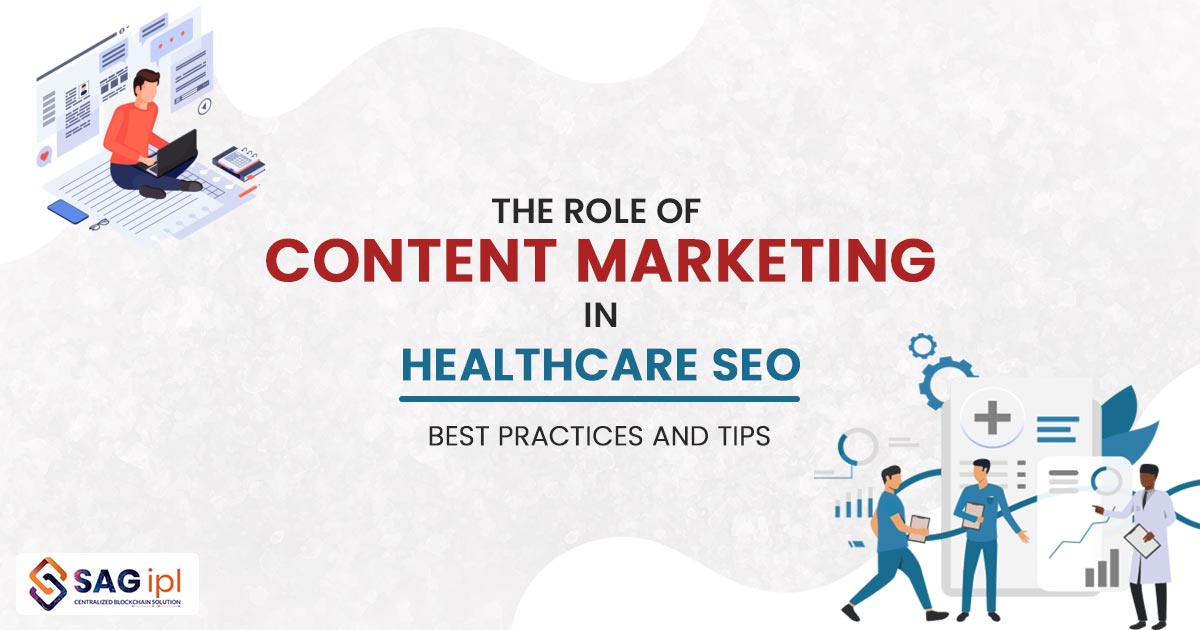In the competitive world of healthcare, having a strong online presence is more important than ever. Patients are increasingly turning to the internet to find information about health conditions, treatments, and healthcare providers. To stand out in this digital landscape, healthcare practices need to leverage content marketing as a key component of their SEO strategy. Utilizing healthcare SEO services can significantly enhance this approach. Here’s a look at the role of content marketing in healthcare SEO, along with some best practices and tips to get you started.
Why Content Marketing Matters in Healthcare SEO
Content marketing involves creating and sharing valuable, relevant, and consistent content to attract and retain a clearly defined audience. In healthcare, this means providing patients with informative and trustworthy content that addresses their needs and concerns. Quality content can improve your search engine rankings, drive traffic to your website, and ultimately convert visitors into patients.
Search engines like Google prioritize websites that offer valuable content and a good user experience. By consistently producing high-quality content, you can signal to search engines that your site is a credible source of information, which can boost your rankings. Additionally, content marketing helps build trust with your audience, positioning your practice as an authority in your field.
Best Practices for Healthcare Content Marketing
1. Know Your Audience
Understanding your target audience is crucial for effective content marketing. Identify the demographics, needs, and preferences of your patients. What health concerns do they have? What questions are they seeking answers to? Tailor your content to address these specific needs, ensuring it’s both relevant and useful.
2. Focus on Quality and Accuracy
In the healthcare industry, accuracy and credibility are paramount. Ensure that all content is fact-checked and references reputable sources. Collaborate with medical professionals to create content that is both informative and clinically accurate. High-quality content not only builds trust with your audience but also improves your SEO rankings.
3. Use a Variety of Content Formats
Different people consume content in different ways. Diversify your content formats to reach a broader audience. Blog posts, articles, videos, infographics, podcasts, and social media posts can all be effective. For example, a video explaining a medical procedure can be more engaging than a text-based article.
4. Optimize for SEO
Incorporate SEO best practices into your content creation process. Conduct keyword research to identify the terms and phrases your target audience is using. Use these keywords naturally throughout your content, including in titles, headings, and meta descriptions. Additionally, ensure your content is structured for readability, with clear headings, bullet points, and short paragraphs.
5. Provide Valuable and Actionable Information
Your content should not only inform but also empower your audience. Provide actionable tips, step-by-step guides, and practical advice that patients can use to improve their health. This not only enhances the value of your content but also encourages visitors to spend more time on your site, which can positively impact your SEO.
6. Promote Your Content
Creating great content is just the first step; you also need to ensure it reaches your audience. Share your content across multiple channels, including your website, social media platforms, email newsletters, and online forums. Engage with your audience by responding to comments and questions, and encourage sharing to increase your content’s reach.
7. Monitor and Analyze Performance
Regularly track the performance of your content to understand what’s working and what isn’t. Use tools like Google Analytics and SEO software to monitor traffic, engagement, and conversion rates. Analyze this data to refine your content strategy and focus on topics and formats that resonate with your audience.
Tips for Effective Healthcare Content Marketing
- Create a Content Calendar: Plan your content in advance to ensure consistency and alignment with your marketing goals.
- Stay Current: Keep your content up-to-date with the latest medical research, trends, and health guidelines.
- Leverage Patient Stories: Share patient testimonials and success stories to build trust and provide real-life examples of your care.
- Collaborate with Influencers: Partner with healthcare influencers and experts to expand your reach and credibility.
- Encourage Interaction: Use calls-to-action (CTAs) to encourage patients to engage with your content, book appointments, or sign up for newsletters.
In conclusion, content marketing is a powerful tool for enhancing your healthcare SEO strategy. By creating high-quality, relevant content that meets the needs of your audience, you can improve your search engine rankings, build trust with patients, and ultimately grow your practice. Stay committed to providing valuable information, and you’ll see the benefits in both your online presence and patient satisfaction.







